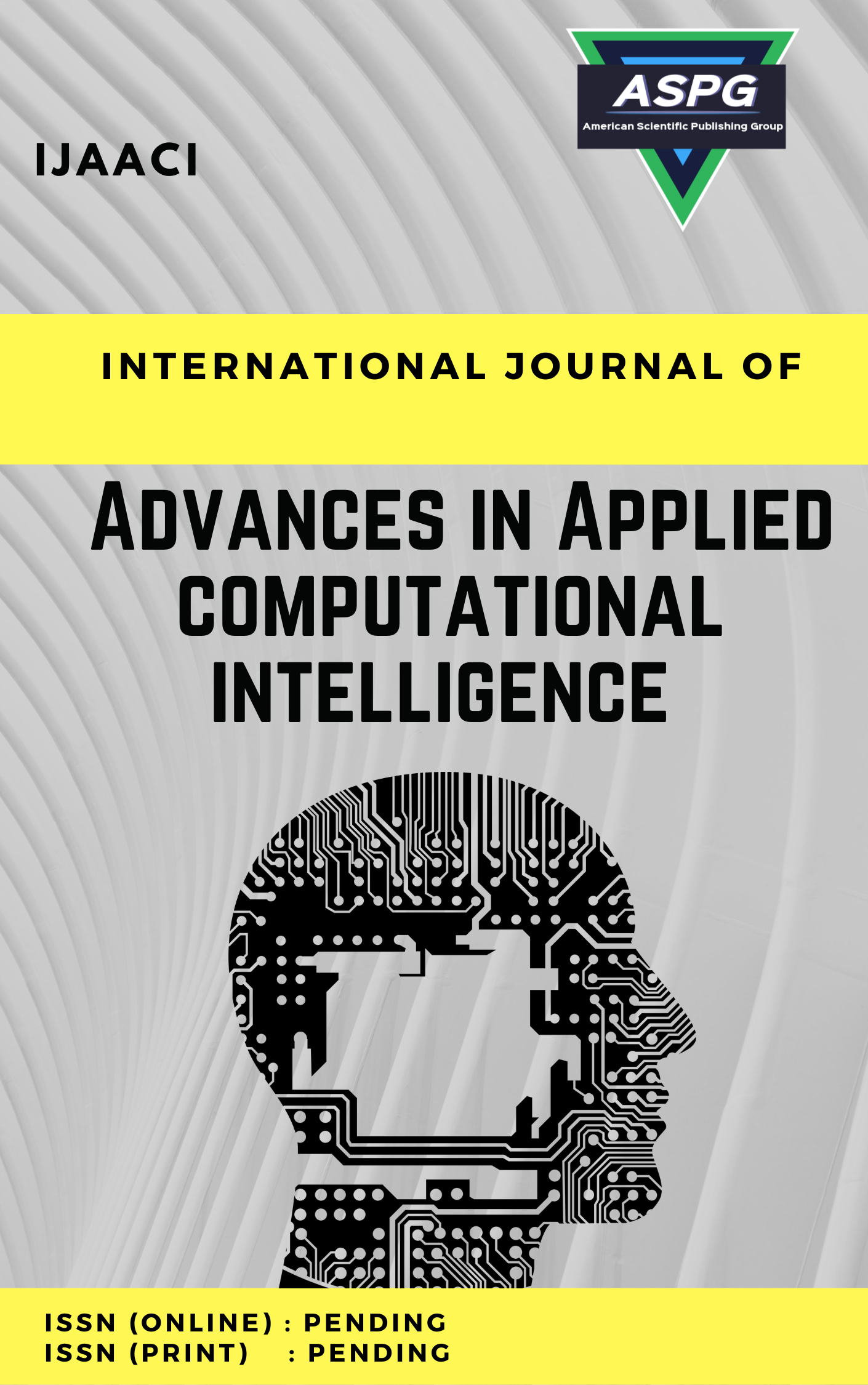

Volume 6 , Issue 1 , PP: 1-12, 2024 | Cite this article as | XML | Html | PDF | Full Length Article
Sanjar Mirzaliev 1 * , Samandarboy Sulaym 2
Doi: https://doi.org/10.54216/IJAACI.060101
Unmanned Aerial Vehicles (UAVs), together with Internet of Things (IoT) technology, have emerged as robust tools for remote sensing (RS) and data collection in different sectors, including environmental monitoring, agriculture, and disaster management. The incorporation of data from UAVs with IoT sensors on the ground can provide a holistic view of the environment, improving the quality of input for image classification. Deep learning (DL) models-based image classification is a key component of IoT-assisted UAVs, transforming them from data collection tools into intelligent decision-making platforms. Especially, Convolutional Neural Networks (CNNs) can automatically recognize objects, patterns, and anomalies in images captured by UAVs. Therefore, the study presents an automated image classification with the Tyrannosaurus optimization algorithm using deep learning (AIR-TROADL) method on the IoT-aided UAV network. The AIR-TROADL technique aims to examine the UAV images for the identification and classification of images into distinct categories. In the projected AIR-TROADL method, an enhanced ShuffleNet model is exploited for feature extraction. Besides, the hyperparameter tuning of enhanced ShuffleNet model can be performed by using TROA, which in turn boosts the classification performance. Finally, the classification of images takes place using the attention-based gated recurrent unit (AGRU) model. A series of simulations have been conducted to exhibit the promising outcome of the AIR-TROADL technique. The comparative outcomes highlighted that the AIR-TROADL method reaches high efficiency over its recent approaches in terms of distinct measures.
Unmanned aerial vehicles , Image classification , Remote sensing , Deep learning , Computer vision
[1] G. Cheng, J. Han, P. Zhou, and L. Guo, ‘‘Multi-class geospatial object detection and geographic image classification based on collection of part detectors,’’ ISPRS J. Photogramm. Remote Sens., vol. 98, pp. 119–132, Dec. 2014.
[2] A. M. Cheriyadat, ‘‘Unsupervised feature learning for aerial scene classification,’’ IEEE Trans. Geosci. Remote Sens., vol. 52, no. 1, pp. 439–451, Jan. 2014.
[3] F. Zhang, B. Du, and L. Zhang, ‘‘Saliency-guided unsupervised feature learning for scene classification,’’ IEEE Trans. Geosci. Remote Sens., vol. 53, no. 4, pp. 2175–2184, Apr. 2015.
[4] L. Ye, L. Wang, Y. Sun, R. Zhu, and Y. Wei, ‘‘Aerial scene classification via an ensemble extreme learning machine classifier based on discriminative hybrid convolutional neural networks features,’’ Int. J. Remote Sens., vol. 40, no. 7, pp. 2759–2783, Apr. 2019.
[5] L.-J. Zhao, P. Tang, and L.-Z. Huo, ‘‘Land-use scene classification using a concentric circle-structured multiscale Bag-of-Visual-Words model,’’ IEEE J. Sel. Topics Appl. Earth Observ. Remote Sens., vol. 7, no. 12, pp. 4620–4631, Dec. 2014.
[6] A. Coates, A. Ng, and H. Lee, ‘‘An analysis of single-layer networks in unsupervised feature learning,’’ in Proc. 14th Int. Conf. Artif. Intell. Statist., 2011, pp. 215–223.
[7] Y. Lecun, L. Bottou, Y. Bengio, and P. Haffner, ‘‘Gradient-based learning applied to document recognition,’’ Proc. IEEE, vol. 86, no. 11, pp. 2278–2324, Nov. 1998.
[8] A. Darwish, A. E. Hassanien, and S. Das, ‘‘A survey of swarm and evolutionary computing approaches for deep learning,’’ Artif. Intell. Rev., vol. 53, no. 3, pp. 1767–1812, Mar. 2020.
[9] A. Krizhevsky, I. Sutskever, and G. E. Hinton, ‘‘Imagenet classification with deep convolutional neural networks,’’ in Proc. Adv. Neural Inf. Process. Syst. (NIPS), 2012, pp. 1097–1105.
[10] F. Al-Turjman, H. Zahmatkesh, and L. Mostarda, ''Quantifying uncertainty in the Internet of medical things and big-data services using intelligence and deep learning,'' IEEE Access, vol. 7, pp. 115749–115759, 2019.
[11] SELVAM, R.P., 2022. Earthworm optimization with deep transfer learning enabled aerial image classification model in IoT-enabled UAV networks. Fusion: Practice and Applications, 7(1), pp.41-1.
[12] Mitra, A., Bera, B. and Das, A.K., 2021, May. Design and testbed experiments of public blockchain-based security framework for IoT-enabled drone-assisted wildlife monitoring. In IEEE INFOCOM 2021-IEEE Conference on Computer Communications Workshops (INFOCOM WKSHPS) (pp. 1-6). IEEE.
[13] Khan, I.U., Alturki, R., Alyamani, H.J., Ikram, M.A., Aziz, M.A., Hoang, V.T. and Cheema, T.A., 2021. RSSI-controlled long-range communication in secured IoT-enabled unmanned aerial vehicles. Mobile information systems, 2021, pp.1-11.
[14] Bera, B., Saha, S., Das, A.K., Kumar, N., Lorenz, P. and Alazab, M., 2020. Blockchain-envisioned secure data delivery and collection scheme for 5g-based IoT-enabled internet of drones environment. IEEE Transactions on Vehicular Technology, 69(8), pp.9097-9111.
[15] Liu, Y., Liu, K., Han, J., Zhu, L., Xiao, Z. and Xia, X.G., 2020. Resource allocation and 3-D placement for UAV-enabled energy-efficient IoT communications. IEEE Internet of Things Journal, 8(3), pp.1322-1333.
[16] Anand, T., Sinha, S., Mandal, M., Chamola, V. and Yu, F.R., 2021. AgriSegNet: Deep aerial semantic segmentation framework for IoT-assisted precision agriculture. IEEE Sensors Journal, 21(16), pp.17581-17590.
[17] Mishra, S., 2023. Internet of Things enabled deep learning methods using unmanned aerial vehicles enabled integrated farm management. Heliyon, 9(8).
[18] Peng, Y., Liu, Y., Li, D. and Zhang, H., 2022. Deep reinforcement learning based freshness-aware path planning for UAV-assisted edge computing networks with device mobility. Remote Sensing, 14(16), p.4016.
[19] Fang, S., Yang, J., Wang, M., Liu, C. and Liu, S., 2022. An improved image classification method for cervical precancerous lesions based on ShuffleNet. Computational Intelligence and Neuroscience, 2022.
[20] Xiong, L., Zhang, L., Huang, X., Yang, X., Huang, W., Zeng, H. and Tang, H., 2021. DCAST: a spatiotemporal model with DenseNet and GRU based on attention mechanism. Mathematical Problems in Engineering, 2021, pp.1-12.
[21] Sahu, V.S.D.M., Samal, P. and Panigrahi, C.K., 2023. Tyrannosaurus optimization algorithm: A new nature-inspired meta-heuristic algorithm for solving optimal control problems. e-Prime-Advances in Electrical Engineering, Electronics and Energy, 5, p.100243.
[22] http://weegee.vision.ucmerced.edu/datasets/landuse.html
[23] Minu, M.S. and Canessane, R.A., 2022. Deep learning-based aerial image classification model using inception with residual network and multilayer perceptron. Microprocessors and Microsystems, 95, p.104652.